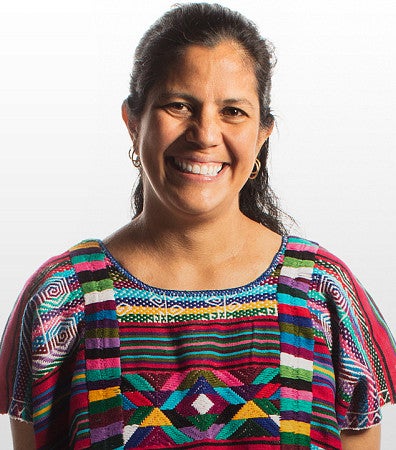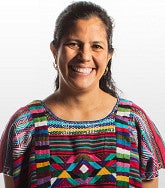
Across the United States, over 65 Native American communities are revitalizing their languages after a period of dormancy without speakers. This process of revitalization is of significant importance and benefit to these communities and the preservation of their cultures.
The University of Oregon has two programs with a similar mission to support and strengthen language preservation and revitalization efforts, the Northwest Indigenous Language Institute and the National Breath of Life Archival Institute for Indigenous Languages. Gabriela Pérez Báez, associate professor of Linguistics, saw the potential to make these programs more accessible through online learning models, which the University adopted during the pandemic.
Through a $326,233 grant from The National Endowment for the Humanities, Pérez Báez and her team are building capacity across both programs to use online tools to increase access to training in archives-based research for language revitalization.


-Gabriela Pérez Báez, professor of Linguistics
Languages without users can be brought back into use, Pérez Báez says. “We should not use death metaphors to refer to languages without users. Rather, think of them as dormant, with the ability to awaken as per community interests and needs.”
Through following best practices in online design, the academic methods and tools Pérez Báez and her team are working to develop are now more accessible to Native American communities. By making language training available online, asynchronously, and at little to no cost, communities without easy in-person access can now use these online materials. Pérez Báez and her team are continually looking to develop ways to make academia more broadly available and relevant, even beyond the pandemic.
“As co-director of the National Breath of Life Archival Institute for Indigenous Languages, I find it very rewarding to know that we can support these efforts in a meaningful way through the training we have developed under the grant,” Pérez Báez says.
Pérez Báez feels that her research has found a good home in the College of Arts and Sciences (CAS). “CAS faculty and administration understand the importance of protecting linguistic diversity and supporting linguistic rights,” Pérez Báez says. “As such, there are continuous expressions of support from UO CAS which encourage the work we are doing.”
-By Alyson Johnston, College of Arts and Sciences

